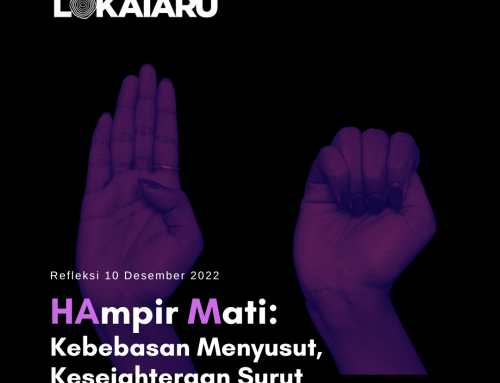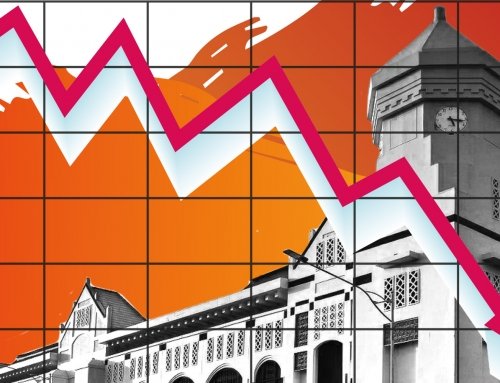
The seemingly endless Freeport saga could be summarised by the Indonesian aphorism “When elephants collide, the mousedeer dies between them” (Gajah sama gajah bertarung, kancil mati di tengah-tengah).
Tensions between the mining giant and the Indonesian government began back in 2014, after the government announced it wanted to renegotiate its existing agreement with Freeport, which does not expire until 2021. The most problematic issues have related to new conditions the government wants to impose, including onshore processing of mineral concentrates and divestment of a 51 per cent stake in Freeport’s local arm to the Indonesian government.
The convoluted negotiation process has been marked by public spats in the media, cabinet divisions, and an alleged bribery scandal involving disgraced former House of Representatives (DPR) Speaker Setya Novanto. The corporation’s thousands of Indonesian workers have been caught in the middle.
The dispute reached a peak in January 2017, when President Joko “Jokowi” Widodo’s administration banned the export of semi-processed metal ore exports, (link is external) including copper concentrates from Freeport’s Grasberg mine. The government said it would allow Freeport to resume exports if it agreed to convert its contract of work (link is external) into a special mining business licence, which would involve divestment of 51 per cent of shares to the government.
In February 2017, Freeport responded to the export ban by threatening to lay off workers (link is external) if the dispute was not resolved quickly. Days later, Freeport McMoran CEO Richard C. Adkerson confirmed that Freeport had laid off 10 per cent of its expatriate staff and said contract workers would follow. About 20,000 of Freeport’s 32,000 workers (link is external) are contractors.
The government, however, seemed relatively untroubled by the threat. “If it is part of pressure, just ignore it,” (link is external) Coordinating Minister for the Economy Darmin Nasution said. Other high ranking government officials like now Coordinating Minister for Maritime Affairs Luhut Pandjaitan dismissed the threats as “inelegant” and “kampungan” (link is external) (uneducated or small minded).
More than a year on, tensions between the government and Freeport are still unresolved. Workers began a series of strikes in May 2017 to protest at their colleagues being dismissed or being placed on enforced leave. The company has claimed that the strikes were illegal, and ended workers’ wages and benefits, stating that by being absent for more than five days, workers were considered to have voluntarily resigned. (link is external) About 8,000 workers have been affected (link is external) by the dispute but the company has refused to negotiate with the main workers’ union, only recognising a more compliant splinter union.
Workers, meanwhile, insist that the strikes are lawful. They have pledged to remain on strike until the company agrees to reinstate workers placed on leave and negotiate with the main workers’ union.
The impact of the layoffs has been devastating, as many of the workers’ livelihoods were dependent on their employment. For many workers, being laid off has involved losing access to healthcare and housing. The company is not the sole culprit – several banks have blocked workers’ access to their accounts (link is external) without adequate client liaison. Further, because of terminated employment, workers have had their social security benefits taken away. This has contributed to the deaths of at least 16 workers who were unable to access medical services. Schools have also asked workers’ children to leave after their parents were unable to pay school fees and many workers have been evicted from their homes after failing to meet rental payments.
The list of violations does not end there. The Lokataru Law and Human Rights Office has discovered many cases of police brutality, for example, during the crackdown on protestors 19 August 2017 (link is external) at Check Point 28. Following the riot, 19 workers were arrested and many were tortured while in detention. Steven Edward Yawan, for example, was reportedly kept in an isolated room with little access to air or light and was tortured with snakes and beatings. Nine workers, including Yawan, remain in detention and are now facing trial in the Timika District Court.
The list of abuses goes on, and calls into question the relationship between the police and Freeport Indonesia. The government relies heavily on the company to provide logistical, infrastructure and financial support in Papua. Likewise, the company often hires police and military officials for security and protection of its mining operations, which has contributed to more abuses of human rights. Many of these violations receive little to no media attention, meaning that there is not much pressure on the firm or the government to be accountable and implement thorough investigations.
Government indifference
Despite clear violations of human rights, the government has paid little attention to the conditions of Freeport’s workers. Labour inspectors at the Ministry of Manpower (both in Jakarta and at the local Papua office) have remained silent and have not followed up on a request submitted by the Freeport workers’ union.
According to the 2003 Labour Law, union busting and intervening to supress a lawful strike are criminal conduct. The labour inspector is responsible for investigating the workers’ allegations and, if violations are confirmed, prosecuting Freeport management. But instead of going after Freeport management, the Ministry of Manpower (through its Directorate of Industrial Relations) decided to facilitate unlawful mediation between the company and the “other” splinter union, without the involvement and agreement of the striking workers. This has led to significant losses for workers.
Similarly, the Social Security Administrative Agency has refused to reactivate the memberships of workers involved in the strike, who it considers to have been sacked. It also continues to ignore the cases of the 16 workers who died after they were unable to access intensive medical care because their memberships had been discontinued. This decision breaches the 2004 Law on the National Social Security System, which mandates provision of health services for a minimum six months after termination of employment.
Despite their frequent comments on the dispute with the mining firm, members of Jokowi’s administration, such as Nasution, Pandjaitan and Energy and Mineral Resources Minister Ignasius Jonan, have made no comments on the workers’ situation or Freeport’s conduct.
It has been 11 months since the strikes began. Most workers have now taken casual positions, working, for example, as motorcycle taxi drivers, street vendors, and construction workers, just to survive. They remain in limbo. Immediate action should be taken to enforce labour law and ensure their rights are met. Resolving the impasse between Freeport and the government is critical – but workers’ rights must not be sacrificed in the process.







